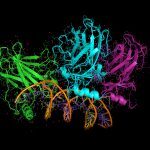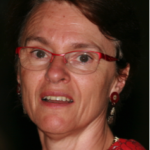Lien vers Pubmed [PMID] – 36252736
Lien DOI – 10.1016/j.mcpro.2022.100428
Clostridioides difficile is the leading cause of post-antibiotic diarrhrea in adults. During infection, the bacterium must rapidly adapt to the host environment by using survival strategies. Protein phosphorylation is a reversible post-translational modification employed ubiquitously for signal transduction and cellular regulation. Hanks-type Serine/Threonine kinases (STKs) and phosphatases (STPs) have emerged as important players in bacterial cell signaling and pathogenicity. C. difficile encodes two STKs (PrkC, CD2148) and one phosphatase (STP). We optimized a TiO2 phosphopeptide enrichment approach to determine the phosphoproteome of C. difficile. We identified and quantified 2500 proteins representing 63% of the theoretical proteome. To identify STK and STP targets, we then performed comparative large-scale phosphoproteomics of the wild-type strain and isogenic ΔprkC, CD2148, Δstp and double prkC CD2148 mutants. We detected 635 proteins containing phosphorylated peptides. We showed that PrkC is phosphorylated on multiple sites in vivo and autophosphorylates in vitro. We were unable to detect a phosphorylation for CD2148 in vivo while this kinase was phosphorylated in vitro only in presence of PrkC. 41 phosphoproteins were identified as phosphorylated under the control of CD2148 while 114 proteins were phosphorylated under the control of PrkC including 27 phosphoproteins that were more phosphorylated in the Δstp mutant. We also observed an enrichment for phosphothreonine among the phosphopeptides more phosphorylated in the Δstp mutant. Both kinases targeted pathways required for metabolism, translation and stress response while cell-division and peptidoglycan metabolism were more specifically controlled by PrkC-dependent phosphorylation in agreement with the phenotypes of the ΔprkC mutant. Using a combination of approaches, we confirmed that FtsK was phosphorylated in vivo under the control of PrkC and that Spo0A was a substrate of PrkC in vitro. This study provides a detailed mapping of kinase-substrate relationships in C. difficile, paving the way for the identification of new biomarkers and therapeutic targets.






